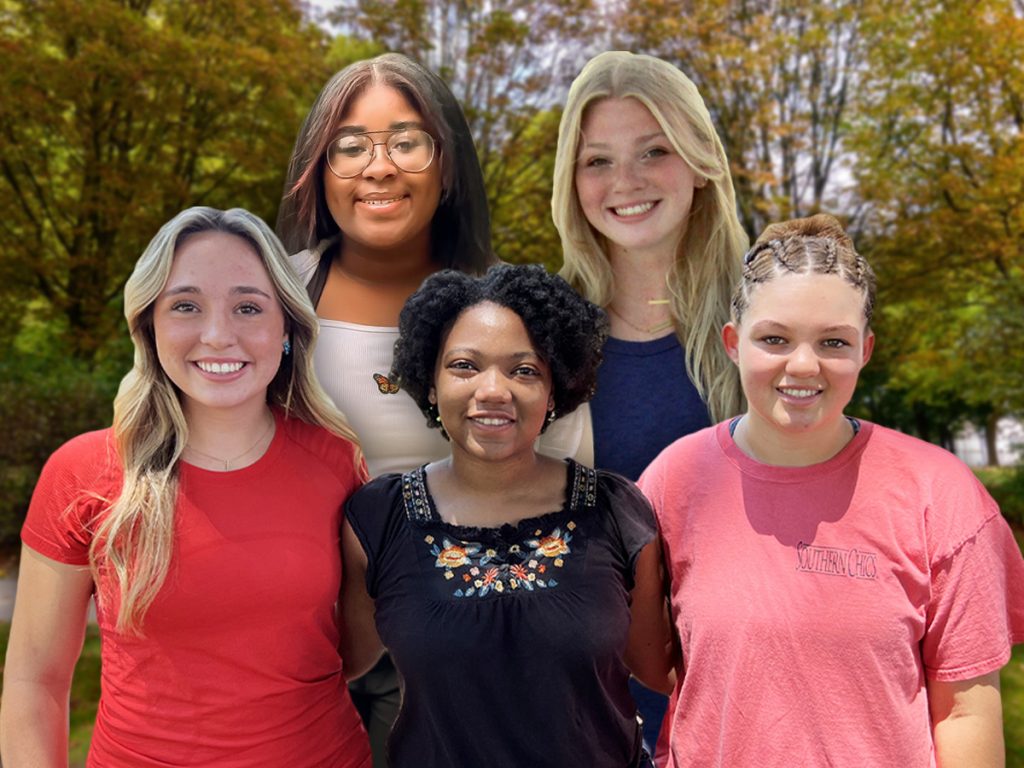
Demeria Moore, Jorja Roberson, Jasmyn Stamper, Cara Robertson & Syrianna Jones
 Fairness transcends competition. Nowhere was that more clear than at the Mississippi Girls Class 1 High School Powerlifting Championships in April. In the most important competition of their season, a group of rivals came to the aid of a competitor to give her a chance to shine.
Fairness transcends competition. Nowhere was that more clear than at the Mississippi Girls Class 1 High School Powerlifting Championships in April. In the most important competition of their season, a group of rivals came to the aid of a competitor to give her a chance to shine.
Or, in this case, to sparkle like her namesake. Diamond Campbell, then a junior at Bruce High School, attempted her first lift, thought it went well and would earn a green light as a good lift. Instead, it earned a red light, which indicates a foul or using incorrect form. A judge told her that she would be disqualified because of the beads in her hair. A rule preventing lifters from wearing certain types of headgear had been altered and itemized for 2021-22 to include bandanas, beads and hair clips.
“I was a little angry,” Diamond says. But mixed with the anger was “shame, a little bit. I kind of felt humiliated, like I was being picked on in a way.”
A teammate and coach came to Diamond’s aid, but news spread quickly to her competitors, including Jorja Roberson of East Union. The issue of beads hadn’t surfaced in earlier meets, “so I was surprised by the decision,” she says. “It’s not fair for her not to compete over something so small.”
Jorja wasn’t the only one with the same idea. Competitors Cara Robertson, Demeria Moore, Jasmyn Stamper and Syrianna Jones joined in furiously removing the beads so Diamond could make it to the stage for her next lift within the time limit.
“I was motivated to help her compete as soon as possible,” Jorja says. “We all just jumped up and helped and then moved right on with our contest.”
So, no big deal, right? Not exactly. In the short term, their quick actions allowed Diamond to make it on stage in time. She ultimately finished fourth in her weight class and set a personal record in the dead lift.
“They could have easily just let me sit there and have to do it by myself and probably miss my next lift,” Diamond says. “But they put everything aside, and they helped me.”
The story got better the next day, when a video of the girls helping Diamond was shared on Facebook. The video has received more than 500,000 views and highlights a rule that Diamond says singles out African Americans.
“The clips, the beads, that’s in our culture,” she says. “When they wrote the rules, they weren’t writing it for white people or other people, they were writing it for my people.”
The video of the competitors and Diamond’s response gave a face and a voice to the issue, causing the Mississippi High School Activities Association to change the rules for this year to allow beads and other hair accessories in competition.
“I can only imagine the backlash they received after this,” Jorja says. “I think the amount of publicity from what we did definitely influenced the administration. It really is a sweet moment, but I never would have thought that it got as much attention as it did.”
The attention has moved beyond Mississippi’s borders. Since 2019, 18 states have passed versions of the CROWN Act, which would make it illegal to discriminate against someone for their hair texture or hairstyle. CROWN is an acronym for Create a Respectful and Open World for Natural Hair. This spring, a national version of the law passed the House of Representatives and awaits action in the Senate.
When – not if – it becomes the law of the land, people can thank Diamond for raising a voice, and her opponents for supporting her, in the face of inequity.